Code
HCS29259
Weight
850 gm / 1.87 lbs
Size
Height
22cm (9") Width
29cm (11") Depth
9cm (4") Material
Brass
Availability
Available

Safe Payment
We accept Paypal, Money Transfer, Bank Transfer
Confidence
Protection covers your purchase and personal data.
Worldwide Delivery
We ship Worldwide, except Russia.Shipping cost US$25.2 for upto 0.5 kgs

Hotline
Talk to help line for your question on 9841267335Antique Finishing
This is an antique patina-finished Garuda Metal Mask, Buddhist Handmade Ritual Mask, Antique Finishing. This is not an antique statue. It is just an antique patina finish. This Garuda Metal Mask, Buddhist Handmade Ritual Mask, Antique Finishing is a testament to the artisan's mastery of the art of aging. Its antique patina has been meticulously crafted to give the appearance of an aged statue, showcasing the artist's unique techniques and skills. Through undisclosed processes and careful aging treatments, the Garuda Metal Mask, Buddhist Handmade Ritual Mask, Antique Finishing undergoes a transformation that captures the essence of time and history. Read More . . .
This is an antique patina-finished Garuda Metal Mask, Buddhist Handmade Ritual Mask, Antique Finishing. This is not an antique statue. It is just an antique patina finish. This Garuda Metal Mask, Buddhist Handmade Ritual Mask, Antique Finishing is a testament to the artisan's mastery of the art of aging. Its antique patina has been meticulously crafted to give the appearance of an aged statue, showcasing the artist's unique techniques and skills. Through undisclosed processes and careful aging treatments, the Garuda Metal Mask, Buddhist Handmade Ritual Mask, Antique Finishing undergoes a transformation that captures the essence of time and history. Read More . . .
About Wall Hanging
Wall hangings with Buddhist motifs are a beautiful and meaningful way to add a touch of spirituality and cultural richness to your home or office decor. These wall hangings come in a variety of materials, including wood and metal, and feature intricate designs that are inspired by Buddhist art and symbolism.
Wooden wall hangings are typically made from high-quality, sustainably sourced wood, such as teak or mahogany. These hangings are often carved with intricate designs and feature images of Buddha, bodhisattvas, or other important figures in the Buddhist tradition. They can be hung on the wall using a hook or string and add a touch of natural warmth and texture to any space. Read More . . .
Wall hangings with Buddhist motifs are a beautiful and meaningful way to add a touch of spirituality and cultural richness to your home or office decor. These wall hangings come in a variety of materials, including wood and metal, and feature intricate designs that are inspired by Buddhist art and symbolism.
Wooden wall hangings are typically made from high-quality, sustainably sourced wood, such as teak or mahogany. These hangings are often carved with intricate designs and feature images of Buddha, bodhisattvas, or other important figures in the Buddhist tradition. They can be hung on the wall using a hook or string and add a touch of natural warmth and texture to any space. Read More . . .
Brief Introduction :
The Garuda is a giant mythical bird or bird-like creature in Hindu and Buddhist mythology.
Garuda is the name for the constellation Aquila and the Brahminy kite is considered to be the contemporary representation of Garuda. In Buddhist mythology, the Garuda are enormous predatory birds with intelligence and social organization. Another name for the Garuda is supara meaning "well-winged, having good wings". Like the naga, they combine the characteristics of animals and divine beings and may be considered among the lowest devas.
Iconography :Garuda is the name for the constellation Aquila and the Brahminy kite is considered to be the contemporary representation of Garuda. In Buddhist mythology, the Garuda are enormous predatory birds with intelligence and social organization. Another name for the Garuda is supara meaning "well-winged, having good wings". Like the naga, they combine the characteristics of animals and divine beings and may be considered among the lowest devas.
There were also the four garuda-kings : Great-Power-Virtue Garuda-King, Great-Body Garuda-King, Great-Fulfillment Garuda-King, and Free-At-Will Garuda-King, each accompanied by hundreds of thousands of attendants.
The Garudas have kings and cities, and at least some of them have the magical power of changing into human form when they wish to have dealings with people. On some occasions Garuda kings have had romances with human women in this form. Their dwellings are in groves of the simbalī, or silk-cotton tree.
The Garuda are enemies to the nāga, a race of intelligent serpent- or dragon-like beings, whom they hunt. The Garudas at one time caught the nāgas by seizing them by their heads; but the nāgas learned that by swallowing large stones, they could make themselves too heavy to be carried by the Garudas, wearing them out and killing them from exhaustion. This secret was divulged to one of the Garudas by the ascetic Karambiya, who taught him how to seize a nāga by the tail and force him to vomit up his stone.
The exact size of the is uncertain, but its wings are said to have a span of many miles. This may be a poetic exaggeration, but it is also said that when a Garuda's wings flap, they create hurricane-like winds that darken the sky and blow down houses. A human being is so small compared to a Garuda that a man can hide in the plumage of one without being noticed. They are also capable of tearing up entire banyan trees from their roots and carrying them off.
Garudas are the great golden-winged Peng birds. They also have the ability to grow large or small, and to appear and disappear at will. Their wingspan is 330 yojanas (one yojana being 40 miles long). With one flap of its wings, a Peng bird dries up the waters of the sea so that it can gobble up all the exposed dragons. With another flap of its wings, it can level the mountains by moving them into the ocean.
The Garudas have kings and cities, and at least some of them have the magical power of changing into human form when they wish to have dealings with people. On some occasions Garuda kings have had romances with human women in this form. Their dwellings are in groves of the simbalī, or silk-cotton tree.
The Garuda are enemies to the nāga, a race of intelligent serpent- or dragon-like beings, whom they hunt. The Garudas at one time caught the nāgas by seizing them by their heads; but the nāgas learned that by swallowing large stones, they could make themselves too heavy to be carried by the Garudas, wearing them out and killing them from exhaustion. This secret was divulged to one of the Garudas by the ascetic Karambiya, who taught him how to seize a nāga by the tail and force him to vomit up his stone.
The exact size of the is uncertain, but its wings are said to have a span of many miles. This may be a poetic exaggeration, but it is also said that when a Garuda's wings flap, they create hurricane-like winds that darken the sky and blow down houses. A human being is so small compared to a Garuda that a man can hide in the plumage of one without being noticed. They are also capable of tearing up entire banyan trees from their roots and carrying them off.
Garudas are the great golden-winged Peng birds. They also have the ability to grow large or small, and to appear and disappear at will. Their wingspan is 330 yojanas (one yojana being 40 miles long). With one flap of its wings, a Peng bird dries up the waters of the sea so that it can gobble up all the exposed dragons. With another flap of its wings, it can level the mountains by moving them into the ocean.


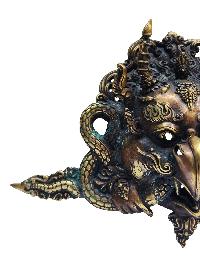
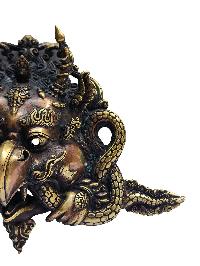
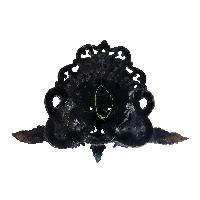
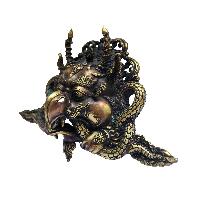
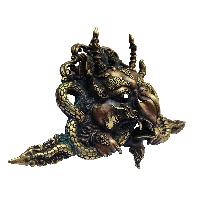
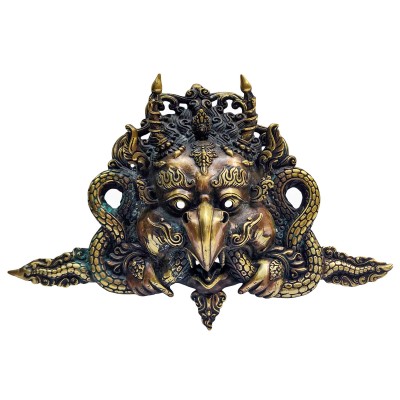
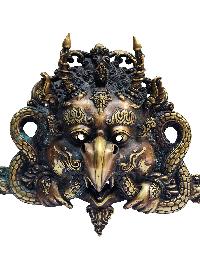

 Bhairav, Handmade Ritual Metal Mask, Antique Finishing, Mahakala, Aakash Bhairav" title="
Bhairav, Handmade Ritual Metal Mask, Antique Finishing, Mahakala, Aakash Bhairav" title=" Bhairav, Handmade Ritual Metal Mask, Antique Finishing, Mahakala, Aakash Bhairav" title="
Bhairav, Handmade Ritual Metal Mask, Antique Finishing, Mahakala, Aakash Bhairav" title="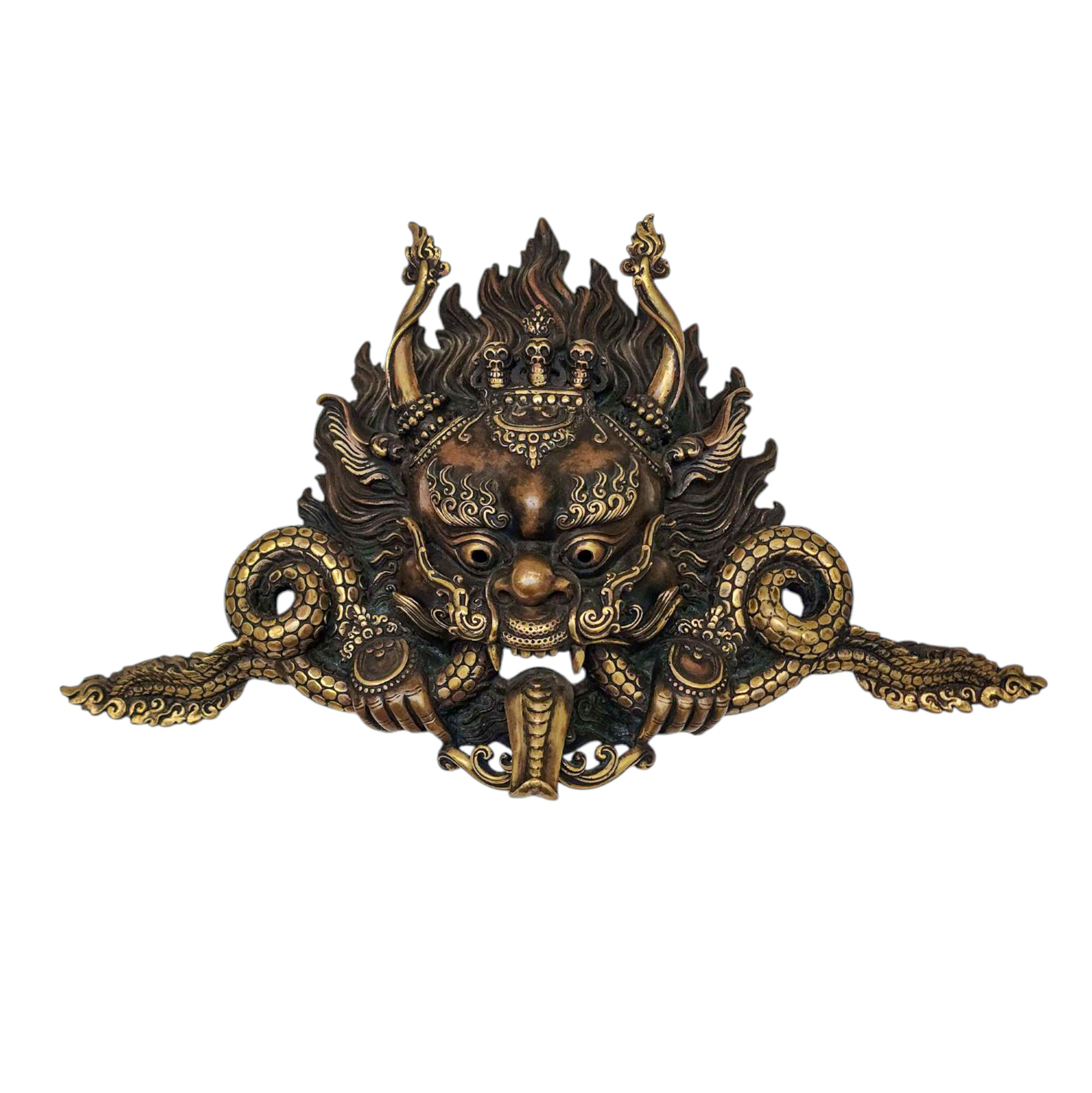 Cheppu, Handmade Ritual Metal Mask, Antique Finishing," title="
Cheppu, Handmade Ritual Metal Mask, Antique Finishing," title="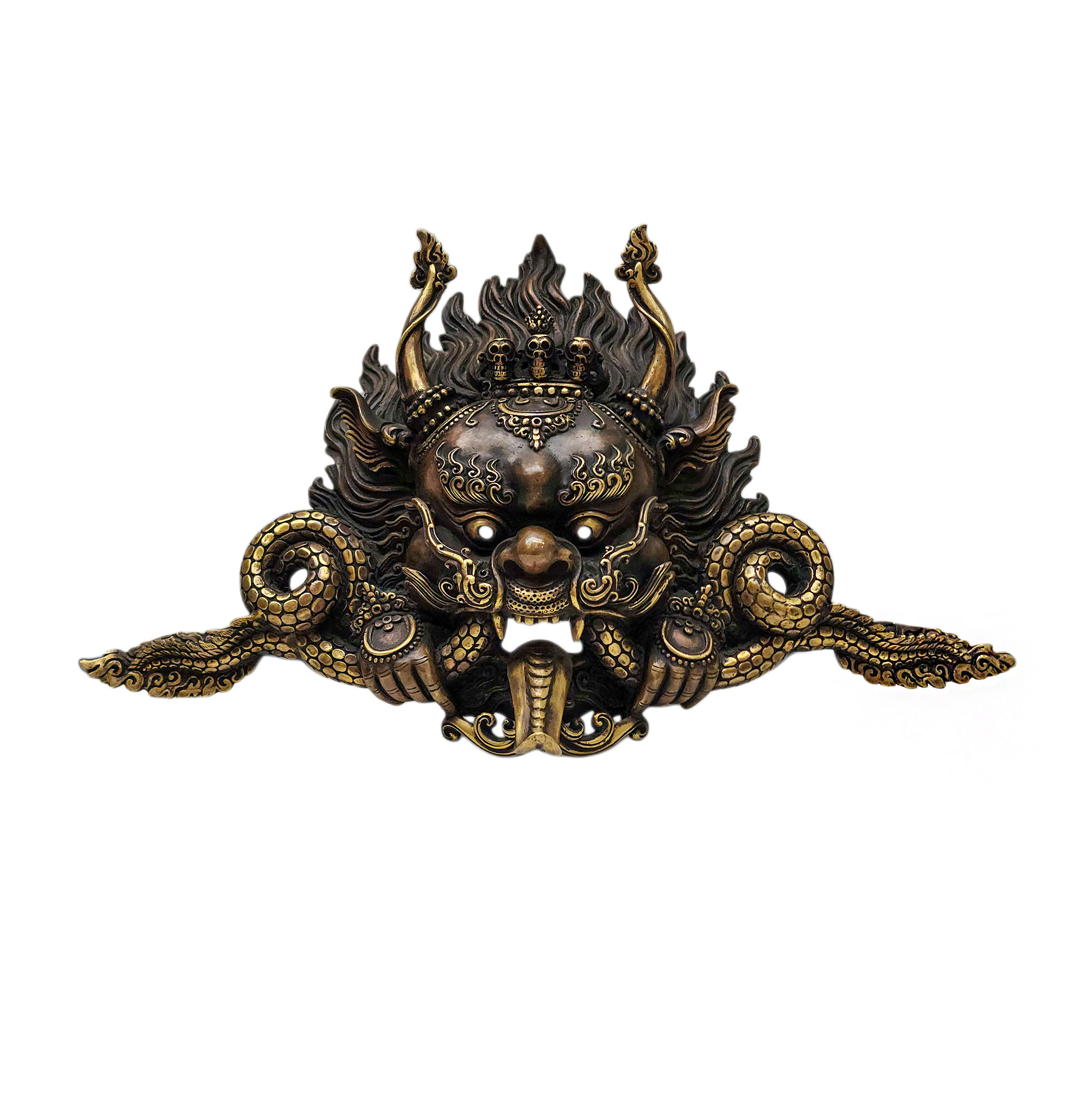 Cheppu, Handmade Ritual Metal Mask, Antique Finishing," title="
Cheppu, Handmade Ritual Metal Mask, Antique Finishing," title="
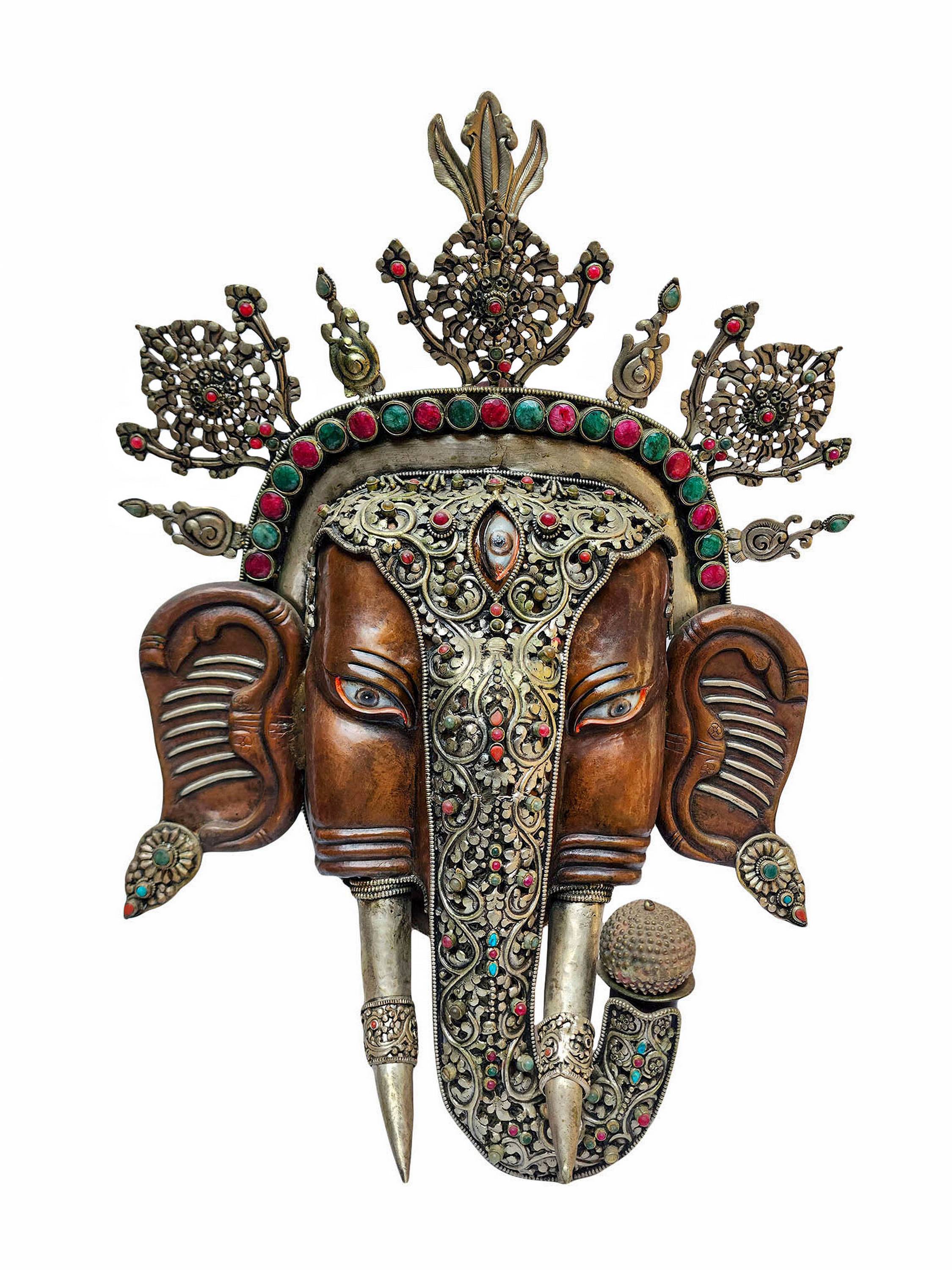
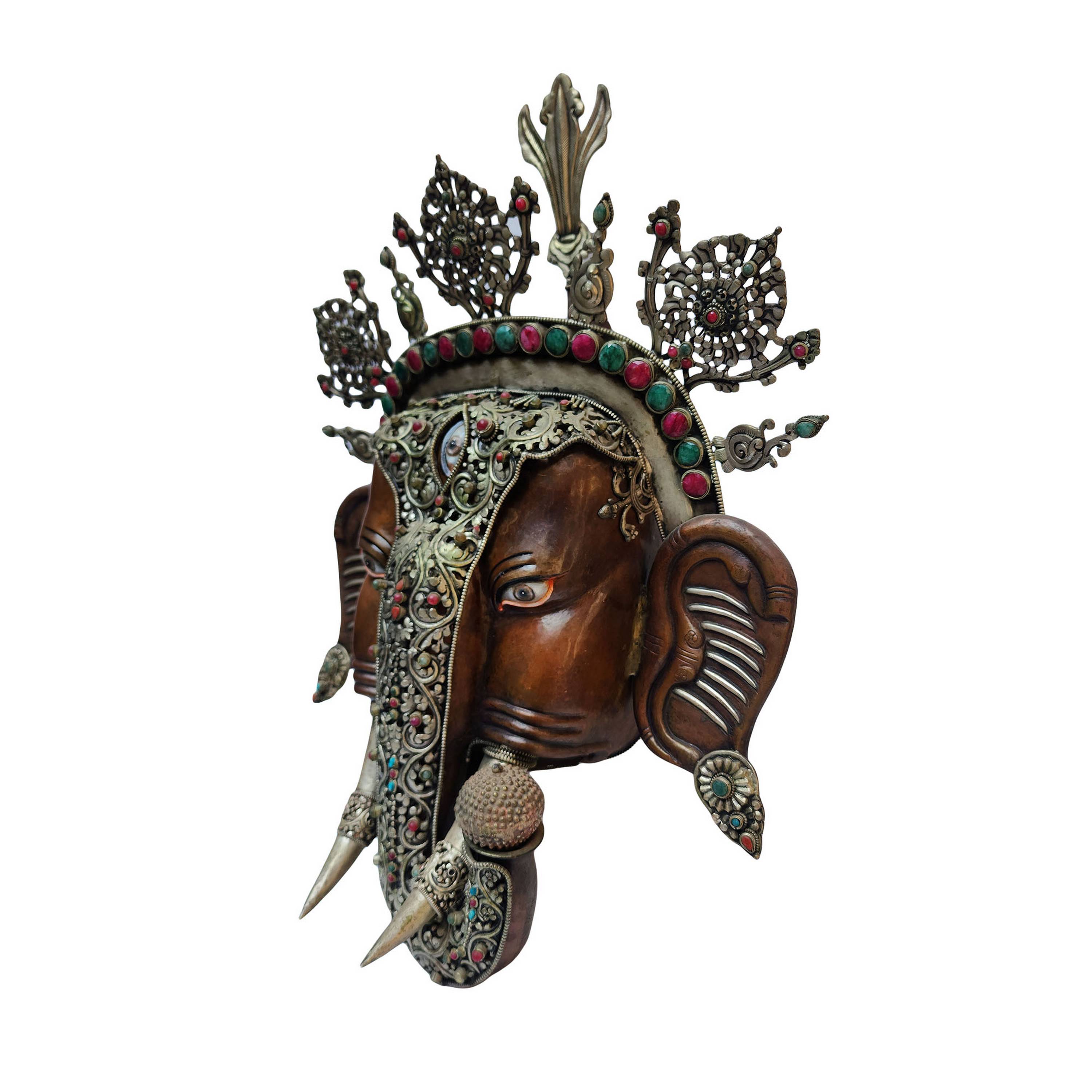
 Bhairav, Handmade Ritual Metal Mask, Antique Finishing, Mahakala, Aakash Bhairav" title="
Bhairav, Handmade Ritual Metal Mask, Antique Finishing, Mahakala, Aakash Bhairav" title="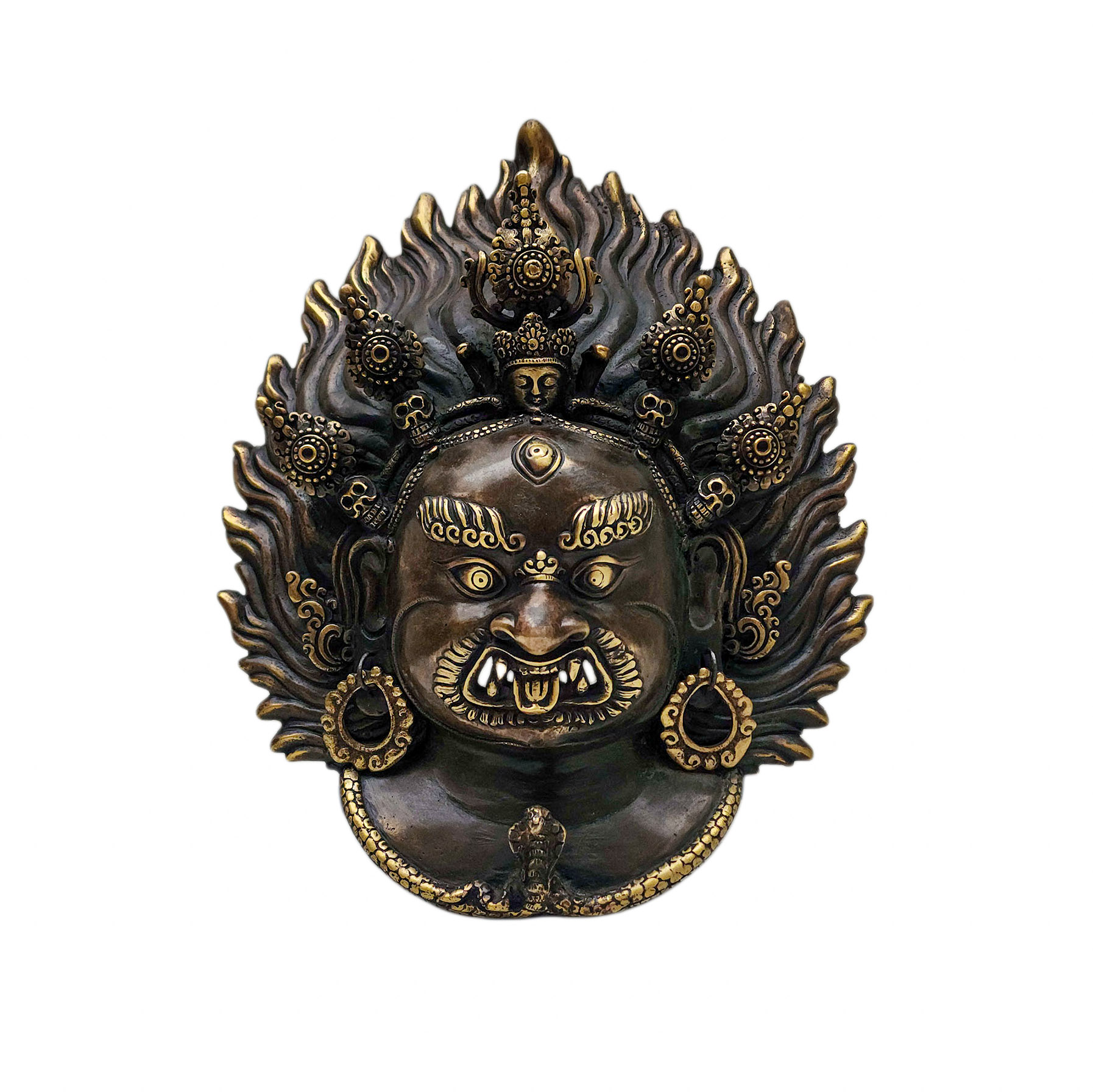 Bhairav, Handmade Ritual Metal Mask, Antique Finishing, Mahakala, Aakash Bhairav" title="
Bhairav, Handmade Ritual Metal Mask, Antique Finishing, Mahakala, Aakash Bhairav" title="
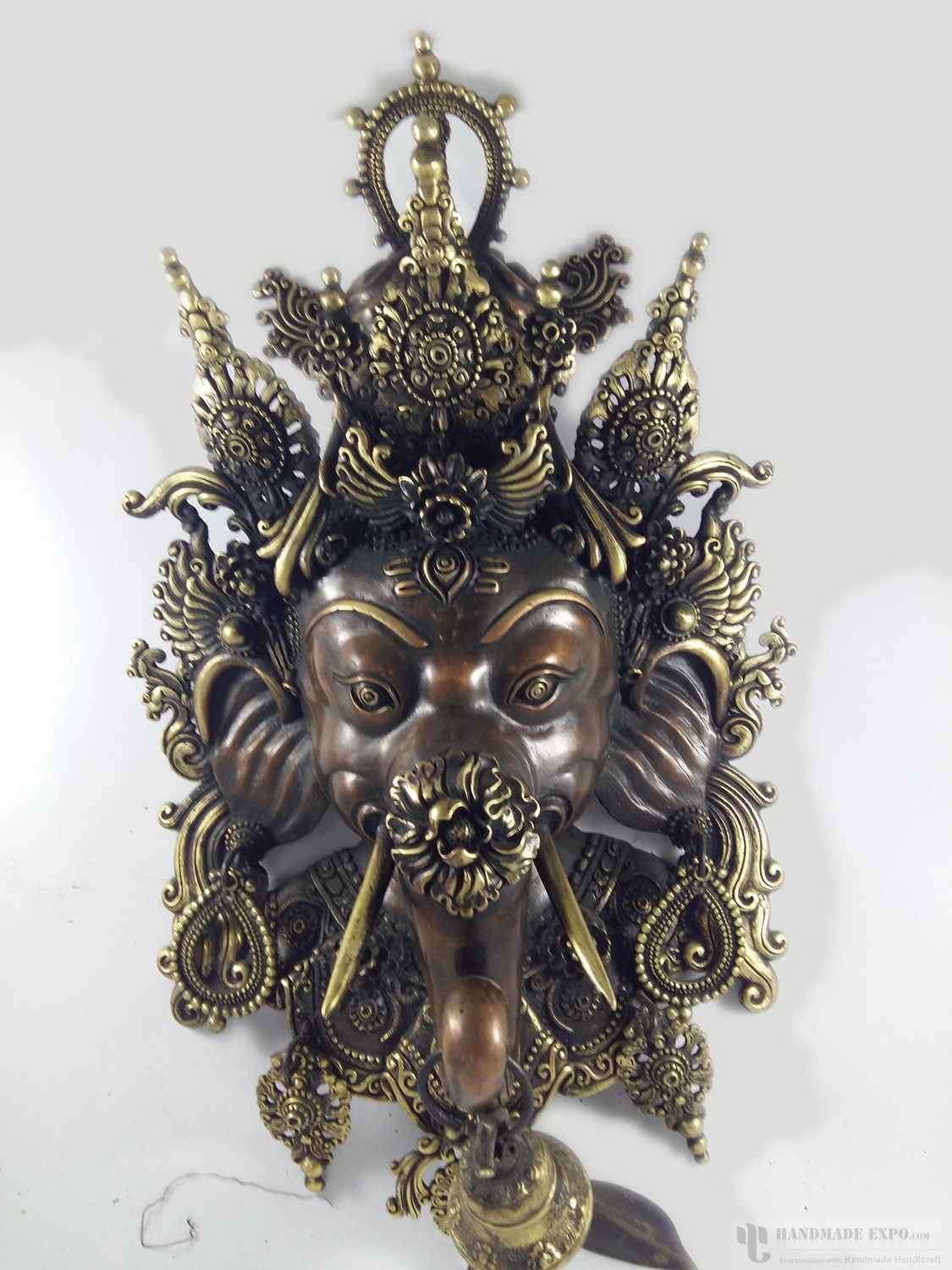
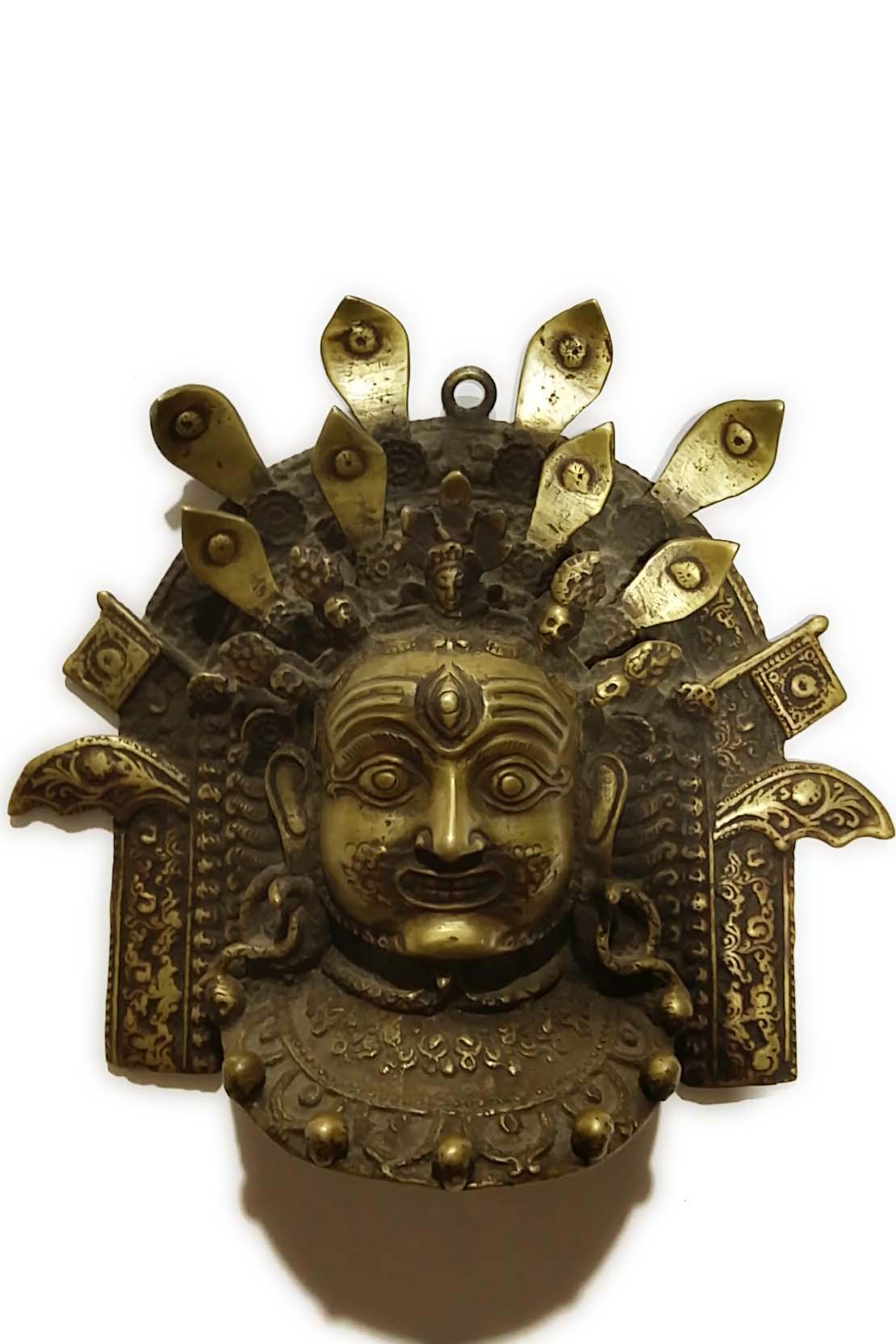
 Sand Casting" title="Ganesh Metal Mask
Sand Casting" title="Ganesh Metal Mask  Sand Casting" title="Ganesh Metal Mask
Sand Casting" title="Ganesh Metal Mask 
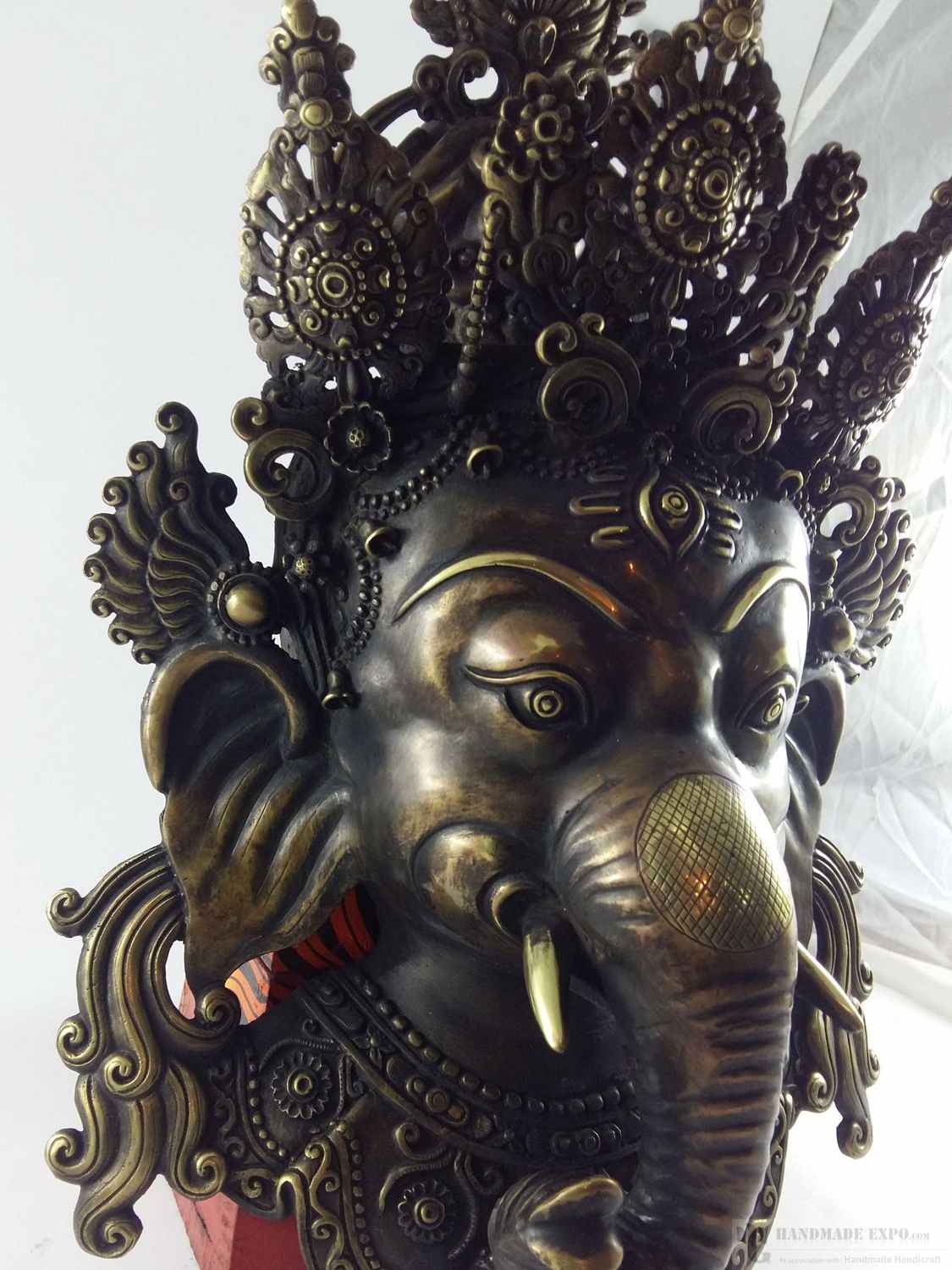
 Garuda, Handmade Ritual Metal Mask, Antique Finishing" title="
Garuda, Handmade Ritual Metal Mask, Antique Finishing" title="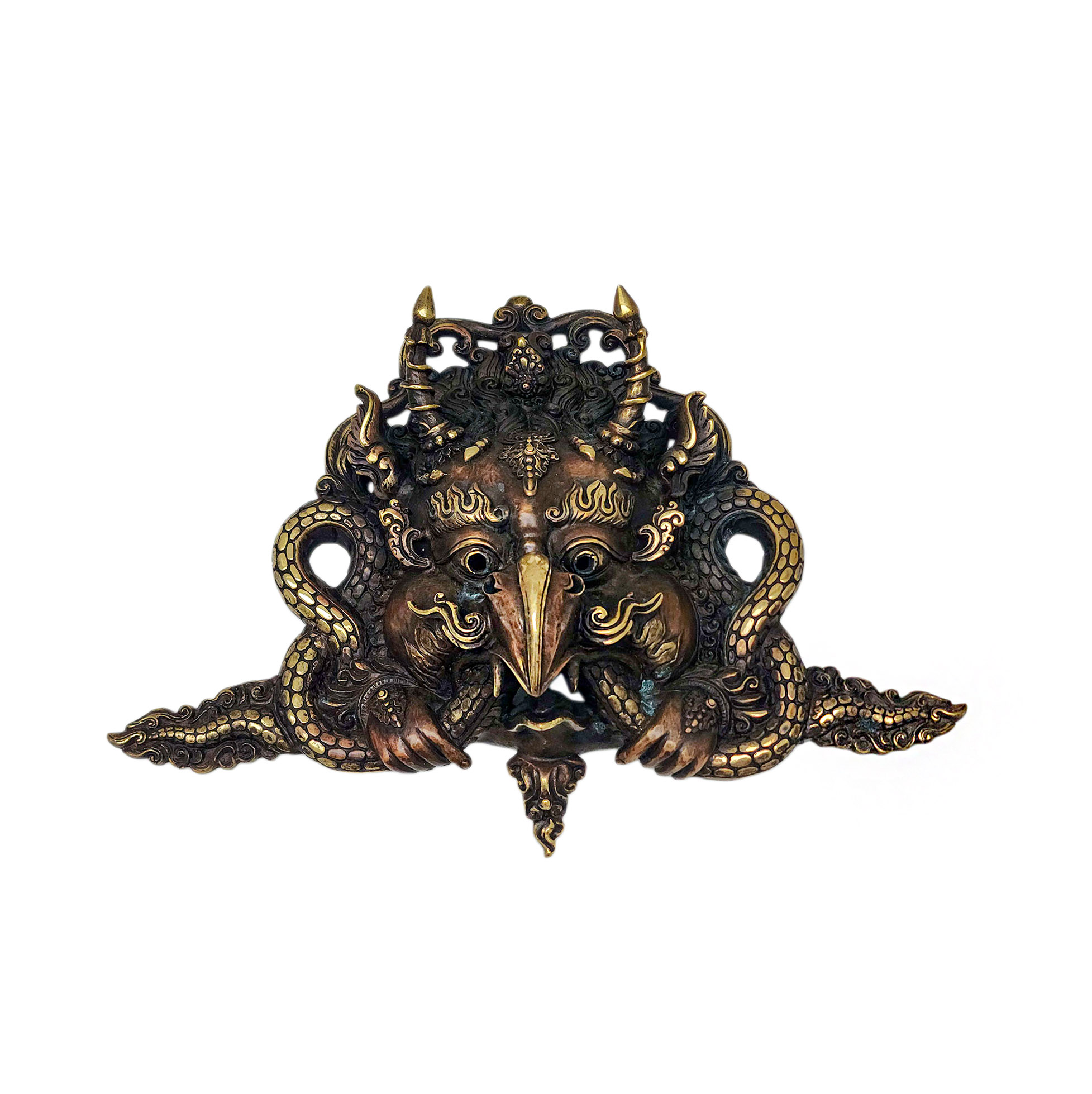 Garuda, Handmade Ritual Metal Mask, Antique Finishing" title="
Garuda, Handmade Ritual Metal Mask, Antique Finishing" title="